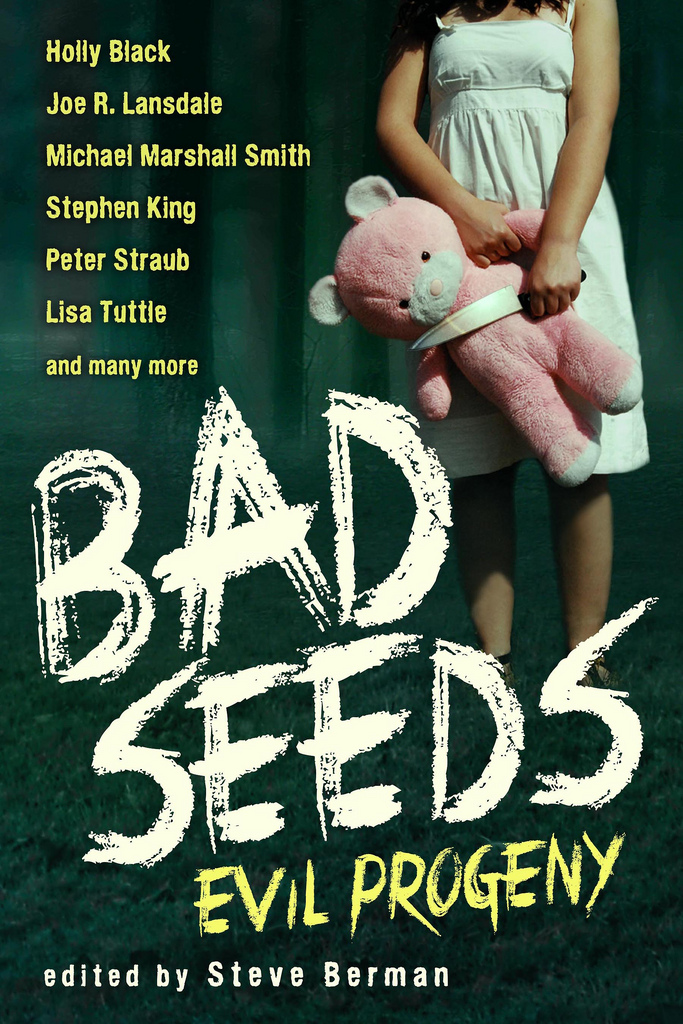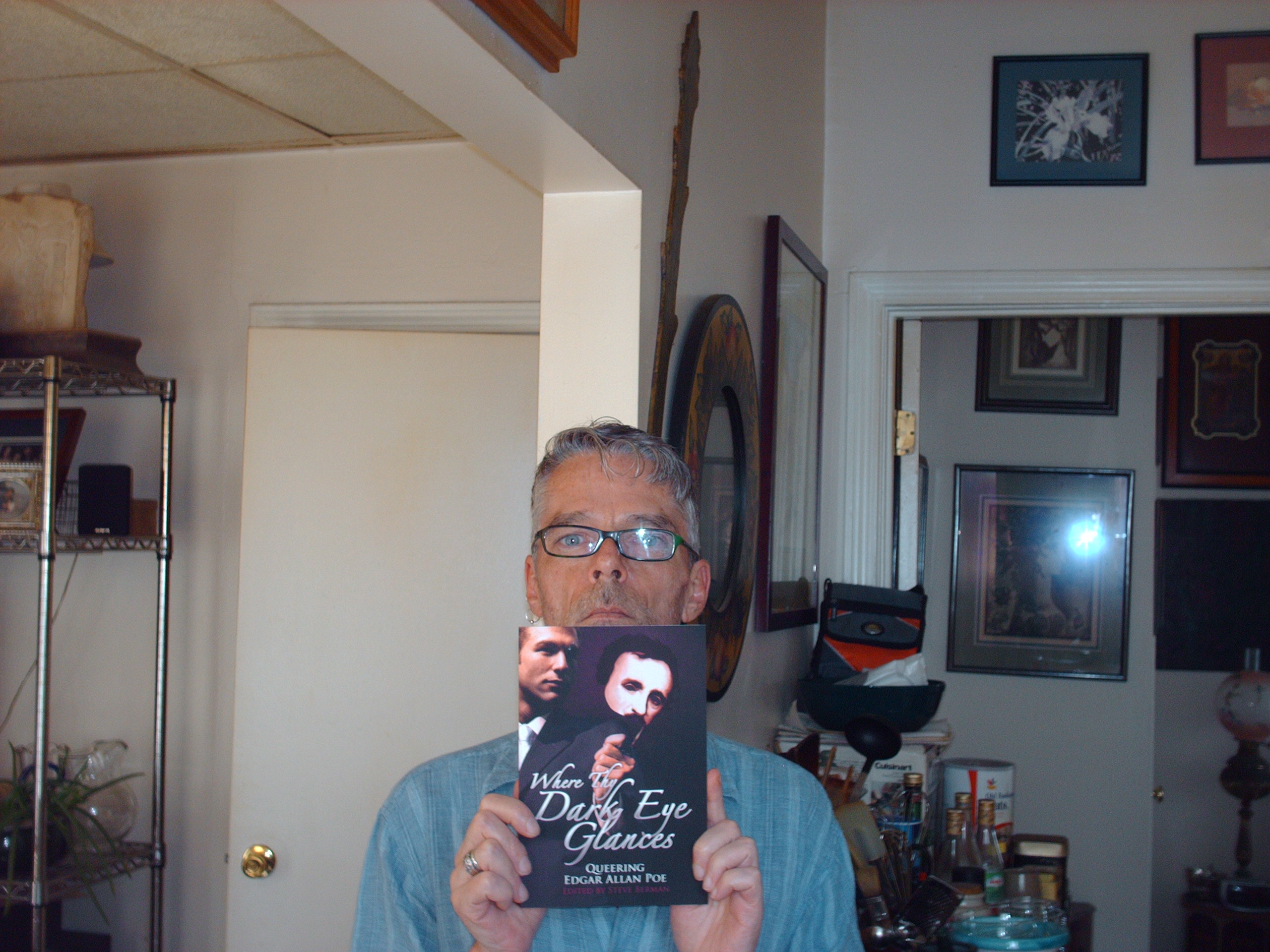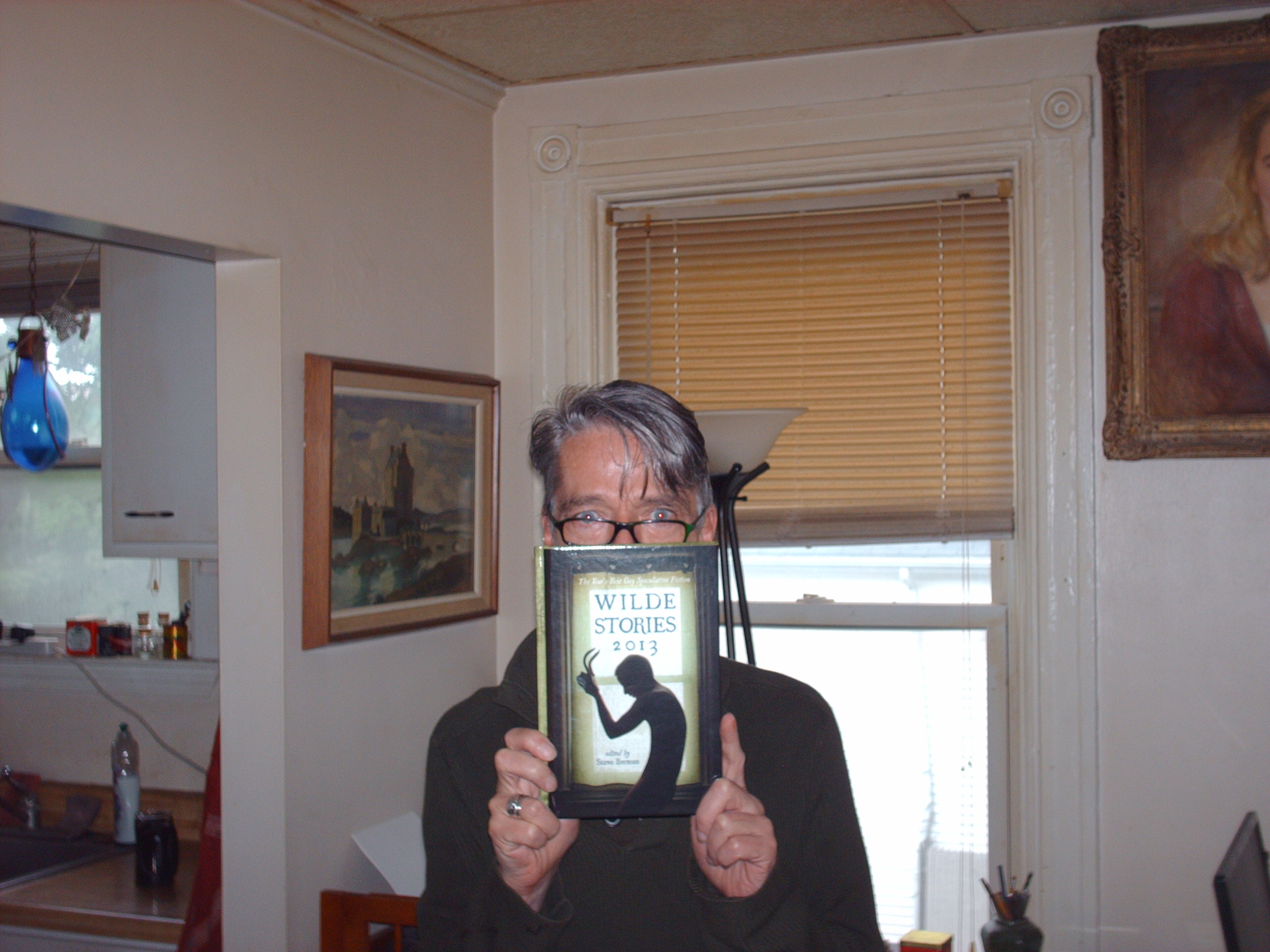As promised, another excerpt! Considerably longer and somewhat less painterly than the previous one. Contextual note: The scene is Cambridge, Mass., January 1991. Neddy is a bike messenger in downtown Boston by day, a freelance illustrator otherwise. Ben has just been laid off from his job at a temp agency.
Neddy before their shower smelled rich and strange, dense, layered tropical odors of sweat and exertion with citrus undertones of aftershave and deodorant, chalky traces of baby powder. In the bedroom, the lights on, voracious, Ben held Neddy tight, before beginning to strip off the layers of his clothing. Pinned to the walls, sketches and finished drawings regarded the two live men dispassionately. In the corner under an angled lamp stood Neddy’s easel bearing a large, nearly finished canvas. This depicted the head and torso of a person wearing polished plate armor, heavily ornamented and gilded—show armor, useless or dangerous in practice, even for the ceremonials of a chivalric tourney. The crested helm was held in the crook of an arm. Behind the figure, men and women in Renaissance court costume dallied in an idyllic glade. Anachronisms abounded: the painting was an Arthurian or operatic (or Ariostovian) fantasy. Ben looked away from the androgynous figure’s piercing green eyes and pulled Neddy’s sweater over his head.
They had gone through the apartment to the kitchen, where Eric, fully dressed, was stirring a pot of every mother’s meat-and-tomato spaghetti sauce. Eric’s boyfriend, a burly, bearded man in his thirties, was there as well. “Oh, hi, Tony,” Neddy had said, and introduced Ben, and given Eric a comradely kiss. He fetched two bottles of beer from the refrigerator. “Do we have time for a shower before dinner, Eric?”
His expression between genial and lascivious, Eric glanced pointedly at Neddy’s crotch and turned to Tony. “Neddy’s always coming up with new euphemisms for fucking. You’ve got all the time you want, darling: this can sit here for weeks without damage. If Tony and I get hungry before you’re ready, we’ll just boil up half the pasta.”
Neddy had hardly reacted, not even a blush, only thanked Eric sweetly. In his room, the door closed on them, he kissed Ben and said, “I don’t like eating early anyway.”
The sweater came off, the several shirts, and then Ben warmed his palms on Neddy’s chest for a moment, plaques of compact muscle coarsened by the veil of hair. This lust was surprising: it had qualifications, accouterments. He felt he wanted to make love with all his clothes still on, but Neddy naked. Naked and helpless—helpless in a false sense, for Neddy was bigger, stronger, unless Ben were to tie him down. But the bed was simply a mattress and box spring on the floor, there was nowhere to anchor the ropes. At the same time, he wished Neddy to be savage, to rip the shirt from his back, scattering buttons over the floor. Not to rape but to overwhelm him. There was something domineering in Neddy he wanted properly to let loose. Yet, again, there was something hardy that was also sentimental and melancholy and wanted fostering. Picking at the knotted drawstring of Neddy’s tights, clumsy, Ben muttered, “You smell like a high-school locker room.”
Neddy pushed Ben’s hands away. “Shoes off first.”
Obedient, Ben knelt and untied the laces of the black leather sneakers. Far overhead, Neddy reached to undo the clip on his ponytail, shook his hair out, raked the fingers of one hand through. He lifted his feet by turns so Ben could remove the shoes, the socks. In the shiny black skin of knitted Lycra, his calves were heavy, the bones of his shins long, ruled lines. His hands were on the drawstring, but Ben said, “No, that’s my job.”
But as Ben rose to his feet, Neddy covered his crotch with his hands and stood back. He stared at Ben. “You don’t have a job. Remember? Take off your clothes.” The line of his mouth was cruel, his eyes hard. Abrupt, he turned away and went across the room to the stereo. His bare feet made small slapping sounds on the floor. Streaks of light glistened on his legs, his buttocks, in his hair tumbling between the shoulders. As if he knew precisely the music he wished to play, he snapped open a CD’s jewelbox, stabbed the power and open buttons, and dropped the glittering disk in place.
Appalled, Ben stared after him. “That’s not fair.”
Fast, violent noise thrust out of the speakers, pounding on a deep bass more rapid than a panicked heart, programmed drums playing faster than any human could manipulate the sticks, electric guitars shrieking with feedback, synthesizers and sequencers producing grating, anguished, industrial clamor. Deep in the mix a thick metallic voice vomited excoriations. “Take your clothes off,” Neddy said again, his voice reasonable with threat, and turned up the volume.
Clumsy with adrenaline, Ben pulled off his tie, unbuttoned his shirt. Neddy moved quickly around the room, lighting more lamps, adjusting their shades so all the illumination was focussed on Ben’s figure. By the time Ben stood naked, his clothes strewn around him, he had lost his erection, his heart was hammering in a vain effort to match the furious bass, and he felt giddy, ill, angry and afraid, exhilarated in a way that was sexual but admitted no sexual response. Standing in the glare, defenseless, trembling, he was dazzled.
Opening a closet, Neddy removed a blue plastic case with a handle and chromed latches. He was graceful, easy, as he moved through the vicious torrent of the music, but the impossible rhythm set up a strobing effect in Ben’s perceptions so he saw Neddy in flickering, jerky flashes, mechanistic. Carrying the box, Neddy approached and crouched before him. “Don’t move.” Now his tone was kind or abstracted. He stroked Ben’s thigh, against the grain, and brushed his palm cruelly over the genitals. “No hard-on,” he observed.
He snapped the latches. As the lid was raised, a kind of gantry lifted two interior trays and set them, step-fashion, in line with the shallow interior. Each tray held a row of paper-wrapped crayons, their waxy, greasy tips a spectrum of potent colors. Still crouched down, Neddy chose a glistening, grassy green. He scribed a line down the crest of Ben’s right instep, over the knuckle of the big toe. The slippery feel of it, the slide of the crayon over the skin, had a lubricious tactility, and the stripe left on Ben’s foot glistened wetly. Neddy held up the crayon and lifted his chin. Sure Ben was watching, he drew it around his mouth as though it were a lipstick. “Non-toxic,” he said. “Water based. Fully washable.” He smeared it with the back of his hand, then leaned over the display and chose a poisonous carmine.
The next track on the CD maintained the punishing bass and drum attack, but played against it an annoyingly melodious guitar riff and ethereal, whining soprano vocalise that did not add up to any kind of language. Ben closed his eyes. His heartbeat was slowing. It seemed he was to stand here as long as Neddy wanted, to feel the crayons like greased fingers travel over his skin, and not to know. He clenched one fist for a moment, then the other, then the muscles in his groin.
Where his skin was hairless or nearly, the color glided on, frictionless—he hardly felt it—but where the hair was thicker or when Neddy drew against the growth it slithered, and it almost seemed Ben could sense the faint twitch in the follicle as each hair was caught, then released. Neddy covered the foot, then moved up the front of the leg, stroking, daubing, stippling, efficient and impersonal. Trying to distinguish the patterns from within, Ben seemed to move his attention, his consciousness, into the surface of his skin and only to his leg—he discarded any awareness of his other limbs, his spine and torso and head—but he could not predict where the crayon would strike next nor envision what the illumination might reveal.
And the disk kept spinning, hurling its unending abuse, here a sustained diapason so deep you heard it through the soles of your feet, there a distended crunch as of crumpling metal, then a piano figure distorted into noise or a flurry of gun shots or an angelic choir. Shrill electronic tones bounced between the speakers, but turbulent drums and the bass were always balanced, produced within your own skull.
The programming on a CD generally lasted forty-five minutes or an hour. By the time it ended—the last track as vehement, propulsive, detestable as the first—Neddy had finished with both of Ben’s legs and moved to the torso. He had worked in spirals of a sort, covering the legs front and back and also incising unknown patterns on the buttocks. Unable to keep his eyes shut the whole time, Ben had blinked from time to time but couldn’t bear to look down, to view what he was becoming. He would glance edgewise at the top of Neddy’s head where the black hair maintained a state between being groomed, gelled—the tracks of a comb’s teeth molded and frozen—and tangled as a thicket. Or he would focus for a few minutes on one of the drawings hung on the walls or the painting on its easel, or stare into a high-wattage bulb until he was dazzled. If, from the strain of being held rigid, a muscle twitched or cramped, Neddy would cuff him lightly in a place that hadn’t yet been decorated and say “Relax” or “Loosen up” or “Be still.” These were the only words either spoke. No conversation could have been conducted through the interference of the music, even if Ben had been able to think of anything to say. The music was horrible, horrifying, but increasingly difficult to resist: when it ended without warning Ben felt his heart plunge a great distance.
Neddy worked on into the sudden silence for a minute—he was performing a delicate operation around the center point of Ben’s navel—and then laid down his crayon and stood up. His face rose into view, features compressed with concentration. Green smears around his mouth made the face frightful. Gentle, he placed his palms on Ben’s shoulders and kissed him lightly. “I’m not done yet.” He shook out his shoulders, reached overhead to clench and unclench his fingers. “But you can stretch if you want, if you’re careful. This stuff smears easy. You can look, too, I don’t mind.” He headed toward the stereo.
“Could we have something more humane?” Ben asked, tentative. He was afraid to look at his illuminated limbs.
“You don’t like techno?” Taking out the disk, Neddy put it back in its case and looked over his other selections.
“It’s hateful!”
“Well, it’s good to dance to. But here’s an old chestnut for you.”
Musically ignorant though he was, Ben recognized the Baroque when he heard it and inclined his chin slightly in gratitude. The solo violin, the tinkly harpsichord continuo and massed subsidiary strings—he might not have chosen it himself, but you could listen to it. Then there was a voice, a bright contralto—no, an alto, a countertenor taking the castrato rôle, singing in brilliantly ornamental Italian. Ben couldn’t concentrate sufficiently to take in the sense of the aria.
But Neddy, turning from the controls, put his hands on his hips and, narrow-eyed, gazed at Ben. “But I don’t know if I can work to it.”
“Why?”
Dismissive, Neddy ran his fingers through his hair, reaching above and behind, lifting it into a crest. “Too brittle and brilliant and stylized.”
“Not that.”
“I’m marking you, Ben.”
“But why?”
In reply, if it were a reply, Neddy pulled apart the knotted drawstring and began to peel down his tights. Shifting his weight, Ben took a small step forward. Neddy glared at him. “No, not yet.” Still, Ben watched him remove the tights, the shorts. Nude at last, more naked than Ben in his greasy skin of paint, Neddy scratched at his chest and smiled. Smeary green, the smile was less than reassuring. “Have I frightened you, Benjy?”
Without waiting for a response (no reply could be anything but true), Neddy went to another cupboard. When he turned back to Ben he was holding a camera. “I’m taking pity on you. You’ll just have to remain an unfinished masterpiece.” He held the camera to his eye and spent a little time focussing. “I’ll just take a few pictures first, so I’ll have something to remember you by. Souvenirs. Mementos.”
Apparently the room was bright enough flash was unnecessary: the camera only clicked. As Neddy moved about, snapping pictures from different angles, Ben held himself rigid, still, but couldn’t prevent himself from trembling. The digitally recreated countertenor (it was Orlando, one of the many operas based on Ariosto) discovered Angelica’s name carved into a tree’s trunk hand-in-hand with Medoro’s, and with scary virtuosity and bravura Orlando went mad. Kneeling near Ben’s feet, the camera angled up, Neddy took another photo. “No need to be scared, Ben: it’s only magic.”
“Neddy.” Afraid even to look down, to move that much, Ben stared straight ahead. “I’m not going to California—that’s not home anymore. I’m not even going to look for work in Providence.” He was staring at the face of the armored figure in the painting. The penetrating green, glazed eyes stared back and the lips appeared to be about to draw up in a disdainful smile. The voice too high to be a man’s but expressing a man’s childish outrage kept on, tumbling up and down arpeggios like an acrobat. The words were nonsense. “And, Neddy, listen: I’ll be in Boston all next week, day and night, job or no job.”
“See: the magic worked.” Now Neddy crouched off to the side. “Move your arm a little—forward. That’s it.”
The magic worked. Fear was often at least half fury. “It’s not something that happened just now—it was all planned and confirmed by yesterday morning.”
Complacent and reasonable, Neddy said, “Magic takes no account of time. If I hadn’t marked you tonight, well, who’s to say about yesterday.”
Angrier still, Ben turned his head, away from where Neddy still crouched, focussing. “Then why didn’t the magic stop me from being laid off?”
“Ah, it’s a silly job. You’re better without it.”
“Sillier than riding a bike through the snow?”
Now the click of the camera’s shutter came from behind Ben. “So what are you going to be doing in town all next week, Ben? What about your cat?”
“Can’t the magic tell you that?”
Neddy didn’t reply. He squeezed off three more shots before coming into Ben’s view again. “No more film,” he said, and pushed the film-advance lever several times. Setting the camera aside, he faced Ben squarely, arms akimbo, hands on hips. The orchestra was playing a slow sinfonia. “That’s that,” he said.
“That’s what?”
“Now we have to seal the magic. Then we’ll take a shower—I told you, the stuff comes off with soap and water. Then we’ll have dinner.”
Orlando, presumably, having rushed raving off stage, soprano Angelica and contralto Medoro (a woman in travesty) sang a duet of melting, saccharine devotion.
“Seal the magic?”
Neddy smiled sweetly, then pouted his lips. His right hand moved to his crotch. “Get hard, Ben. I laid in a supply of condoms. Like Eric said, we’re going to make euphemisms.”









